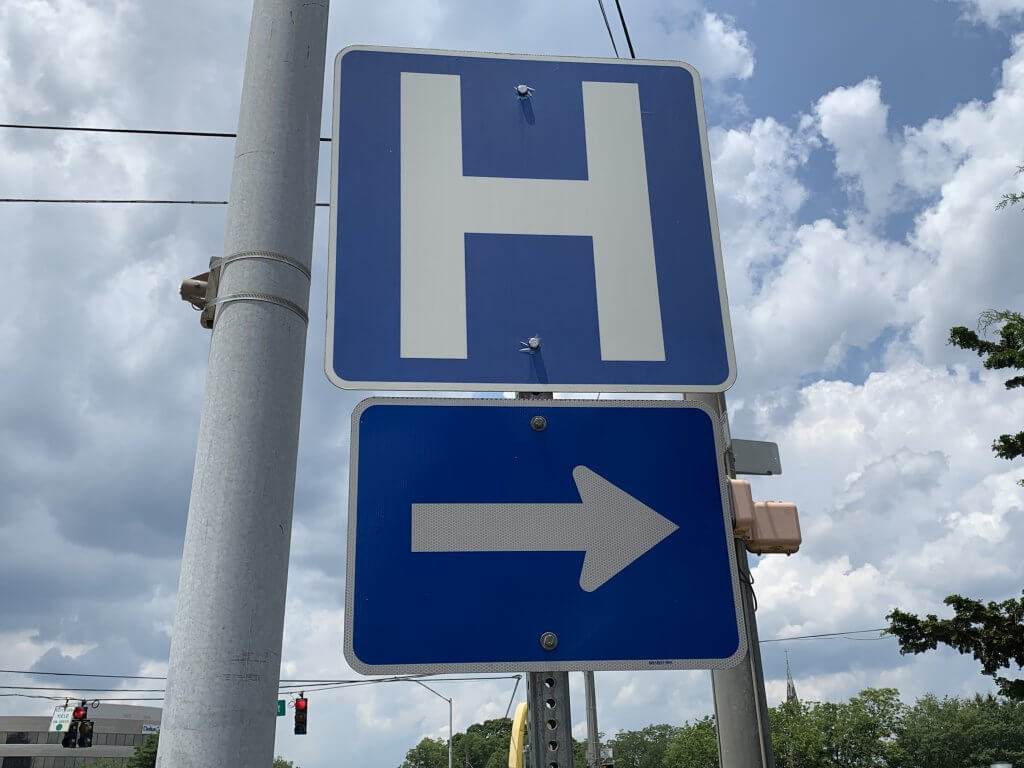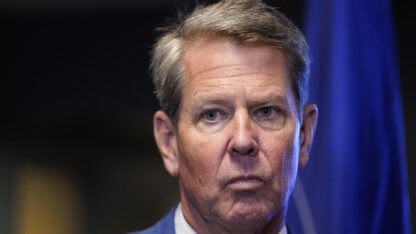Biden administration suspends Kemp’s health care plan months before planned start

The Biden administration has followed through on its threat to suspend Georgia’s plan to bypass healthcare.gov, blocking the state’s alternative program from going live as planned this November.
The decision took effect Tuesday, which was the same day state officials were notified, and the move means Georgia consumers will continue to be able to sign up for individual health care plans through the federal marketplace exchange during open enrollment this fall.
“Georgia should not take any further action to implement the Georgia Access Model as of the effective date of the suspension,” Chiquita Brooks-LaSure, administrator of the Centers for Medicare and Medicaid Services, wrote in a letter.
In April, Brooks-LaSure gave the state three months to provide more analysis and an updated plan to avoid suspension. The state responded in late July with a written challenge.
Federal officials have not, however, terminated the program. Instead, in a letter Tuesday, the head of the Centers for Medicare and Medicaid Services suggested implementation could be delayed a year if the state provides the requested information and alters its plan to avoid a federally projected drop in enrollment.
“We’re evaluating our options based on CMS’ decision,” said Katie Byrd, spokeswoman for Gov. Brian Kemp.
The federal agency’s decision is the latest in the ongoing back-and-forth between Georgia officials and the Biden administration, which started a broad review of previously approved health care waivers last year.
A pair of waivers proposed by Kemp in his first year in office were approved in late 2020 by the Trump administration. Georgia has already sued the federal government after the Biden administration rejected major parts of the governor’s plan, such as a proposed work requirement, to slightly expand Medicaid.
Federal officials have pointed to changes in the last year or so that helped boost enrollment through the federal exchange, including enhanced premium tax credits that would be extended another three years under the Democrats’ climate, health and tax bill that was voted out of the U.S. Senate on Sunday.
More than 700,000 Georgians had signed up or re-enrolled in Affordable Care Act plans during the enrollment period that ended in mid-January. That was a 36% increase from the prior year.
The waiver would have shut the door on the most popular pathway for enrollment – healthcare.gov, said Laura Colbert, executive director of Georgians for a Healthy Future. The federal government’s decision now means the federal health insurance website will remain available to Georgians shopping for health insurance, although they can also still work directly with insurers and brokers if that is their preference.
“Consumers will have all doors open to them this fall,” Colbert said Tuesday.
The suspension only affects the part of the plan that would have bypassed healthcare.gov and diverted consumers looking for insurance to a privately run process.
U.S. Sen. Raphael Warnock, who has pushed the Biden administration to pull the plug on the program, said Tuesday that suspending the waiver “will ensure that Georgians will be able to keep purchasing affordable health care.” The Democrat said the move will “save lives and save families money.”
Another provision in the same waiver created a broadly supported reinsurance program that state officials say has reduced premiums by an average of 12% statewide. That program remains in place.
Georgia officials have continued to defend the state’s proposed alternative to the federal exchange, which would have sent consumers directly to private insurers and brokers to choose a plan.
Grant Thomas, director of the Governor’s Office of Health Strategy and Coordination, told federal officials last month that the state has spent about $31 million implementing the program.
“If the Departments try to suspend the program, that will unlawfully undermine Georgia’s reliance interests and render those investments wasted,” Thomas wrote in a letter in late July.
Brooks-LaSure said the federal government had notified the state multiple times about their concerns, with letters dating back to early last summer. She said state officials “could not have reasonably expected that the waiver would remain in effect absent its own submission of an acceptable corrective action plan.”
Plus, Brooks-LaSure added, the funding would not be “wasted” if an updated version of the program goes live next year.
“Moreover, the harm to the public of allowing the implementation of the Georgia Access Model to proceed, given the projected substantial coverage losses for tens of thousands of individuals, far outweighs Georgia’s stated financial harms,” she wrote.








